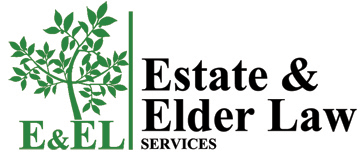ESTATE PLANNING, Part 2: Transfer of Wealth

This is part 2 of a three-part series of blogs on the basics of Estate Planning. Broadly speaking, the goal of an estate plan is to give you peace of mind and to preserve family harmony after you die. We can help in three ways:
1.Take steps now to make sure your wishes are understood and honored if you become incapacitated
2.Create a plan that will quickly and cheaply transfer your wealth when you die to the people you have decided should inherit it.
3.Protect your beneficiaries from themselves and outsiders.
Last time we talked about incapacity. Today, we will talk about transferring your wealth and property to your loved ones by sharing common mistakes.
Mistake #1: No Wealth Transfer Strategy at All
A thoughtful plan to transfer your home, property, money and valuables when you die is one of the greatest gifts you can leave your family. A well-designed plan can be tailored to distribute the things you actually own (your assets), it can account for your unique family situation and it can streamline the transfer of your assets so they pass quickly and cheaply to your loved ones.
A trust can accomplish those goals. Your assets are transferred out of your name and placed in a trust which includes specific instructions on how to distribute your property when you die. The trust can provide special rules to protect a family member who has a disability so that public benefits are not lost. It also does not require probate – the very public legal process of transferring ownership from the dead to the living.
Probate actually makes it easy for creditors to file claims against an estate because a notice of death is published in the newspaper. To file a claim, true or false, a creditor only needs to file a single-page claim form.
The required period of time to leave an estate open is at least eight months. That is the statutory claim period. If a house or other real estate passes through probate and it is sold while the claim period is open, then the proceeds cannot be distrusted to the heirs, hence the phrase, “tied up in probate.”
Mistake #2: Failure to Understand and Plan for Administrative Fees and Taxes
Death taxes apply to the transfer of your property when you die. Gift taxes apply to the transfer of your property while you are alive. These two taxes interface. Since 2000, these taxes have changed significantly. For example, Delaware abolished estate and inheritance taxes in 1999, then reimposed the estate tax in 2009 and then abolished it again in 2018. Congress just changed the exemption for estate and gift taxes but the exemption reverts back to its current level in 2025. Certain exemptions allow you to transfer property in your estate or as a gift without paying taxes. These taxes, which change annually, are a top priority for us when we provide estate and gift tax planning for clients and during our periodic reviews.
While Delaware abolished estate taxes, it did not abolish the probate fee charged by the counties when one dies. That is currently 1.75%. Additional administrative fees and costs are significant, depending upon the size of your estate.
Because of the complexity of legal issues related to estate and gift taxation, you should use an estate planning lawyer like the experts here at Estate & Elder Law Services to help you with your estate plan.
